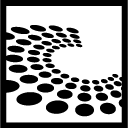froscon2010 - PREVIEW
FrOSCon
Free and Open Source Software Conference
| Referenten | |
|---|---|
|
|
Benjamin Mako Hill |
| Programm | |
|---|---|
| Tag | Day 2 - 2010-08-22 |
| Raum | HS1/2 |
| Beginn | 12:45 |
| Dauer | 01:00 |
| Info | |
| ID | 644 |
| Veranstaltungstyp | Vortrag |
| Track | Keynote |
| Sprache der Veranstaltung | englisch |
| Feedback | |
|---|---|
|
Haben Sie diese Veranstaltung besucht? Feedback abgeben |
Antifeatures

This talk provides a humorous description of an argument in favor of free software based on what I call "antifeatures:" functionality that users hate and that technology developers will often charge users to not include. From DRM to crippled non-free operating systems to digital cameras, I will show off many of the worst antifeatures and describe how free software both makes them impossible and helps users work around them.
In 1996, a furor erupted over Microsoft Windows NT. At the time, Microsoft was selling two versions of its popular operating system: NT Workstation (NTW) and NT Server (NTS). NTS cost roughly $800 more than the NTW. Aiming to enforce this difference, both the NTW code and the license agreement restricted users to no more than ten concurrent TCP/IP (i.e., Internet) connections; NTS remained unlimited. It was eventually revealed that the operating systems were bit-for-bit identical; NTW workstation had the limits built in just so Microsoft could charge people to take them out.
The ability to run an unlimited number of connections is what I call an antifeature. An antifeature is functionality that a technology developer will charge users to not include. It is more difficult for Microsoft to limit Internet connections than it is to leave them unconstrained, and the limit is not something that any user would request. DRM and Treacherous Computing systems are, in many ways, extreme examples of antifeatures. Users don't want either and they are hugely expensive and extremely difficult for developers to implement.
Region-coded DVDs, copy-protection measures, and Apple's optional DRM music store--where users initially paid more for the DRM-free tracks--are also excellent examples. It takes a large amount of work to build these systems and users rarely benefit from or request them. Like blackmail, users can sometimes pay technology providers to not include an antifeature in their technology.
But sometimes, as in the case with many DRM systems, users cannot pay to turn their antifeatures off at all! An example of such an antifeature can be seen in the fact that Mozilla and Firefox were blocking pop-ups for years before Microsoft got around to adding the feature to its competing Internet Explorer browser. Despite the fact that Firefox has become fancy about pop-up blocking recently, simply not showing pop-ups (i.e., the way the feature was originally implemented in Mozilla and celebrated by users) is easier than showing them. Microsoft held back not because it was difficult, but because others parts of Microsoft, and their partners, used and made money from pop-ups. Ultimately, Microsoft lost droves of users to the free alternative that was willing to put users first. Until 2005, another proprietary web browser, Opera (which offered pop-up blocking before Firefox did) displayed an irremovable banner advertisement unless users paid for premium version of the software. No users liked the banners, and obviously, it's more difficult to show advertisements than it is to leave them out.
This talk will showcase a variety of these antifeatures as an example of an a create, humorous, and entertaining form of free software and open source advocacy. Unfortunately, for the companies and individuals trying to push antifeatures, this talk will point out that users increasingly often have alternatives in free and open source software.
Software freedom, it turns out, makes antifeatures impossible in most situations. Microsoft's predatory NT pricing is impossible for GNU/Linux, where users can program around it. A version of Firefox funded by advertisements would be too--users would simply build and share a version of the software without the antifeatures in question. Ultimately, the absence of similar antifeatures form some of the easiest victories for free software. It does not cost free software developers anything to avoid antifeatures. This talk will show that, in many cases, doing nothing is exactly what users want and what proprietary software will not give them.
